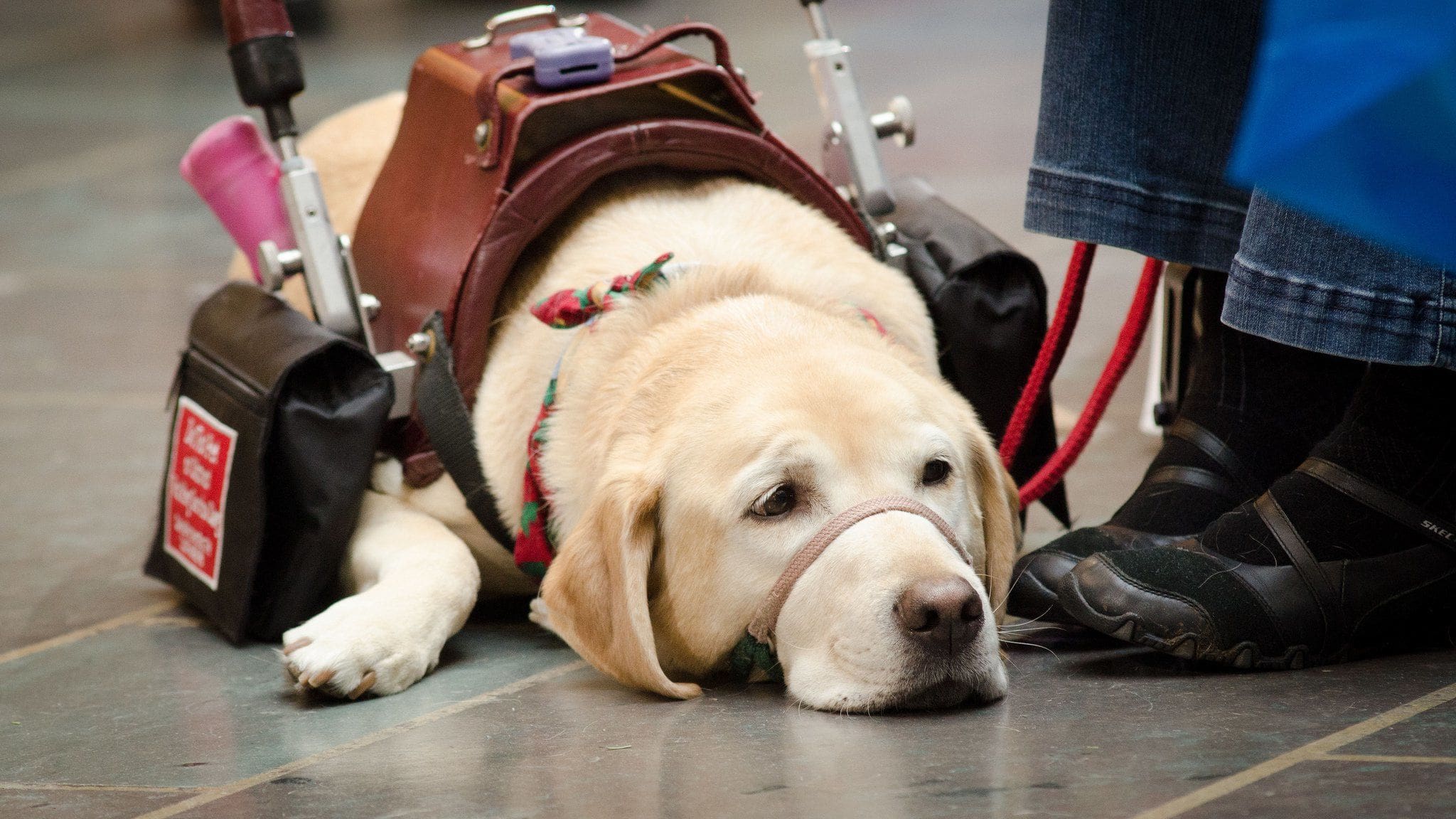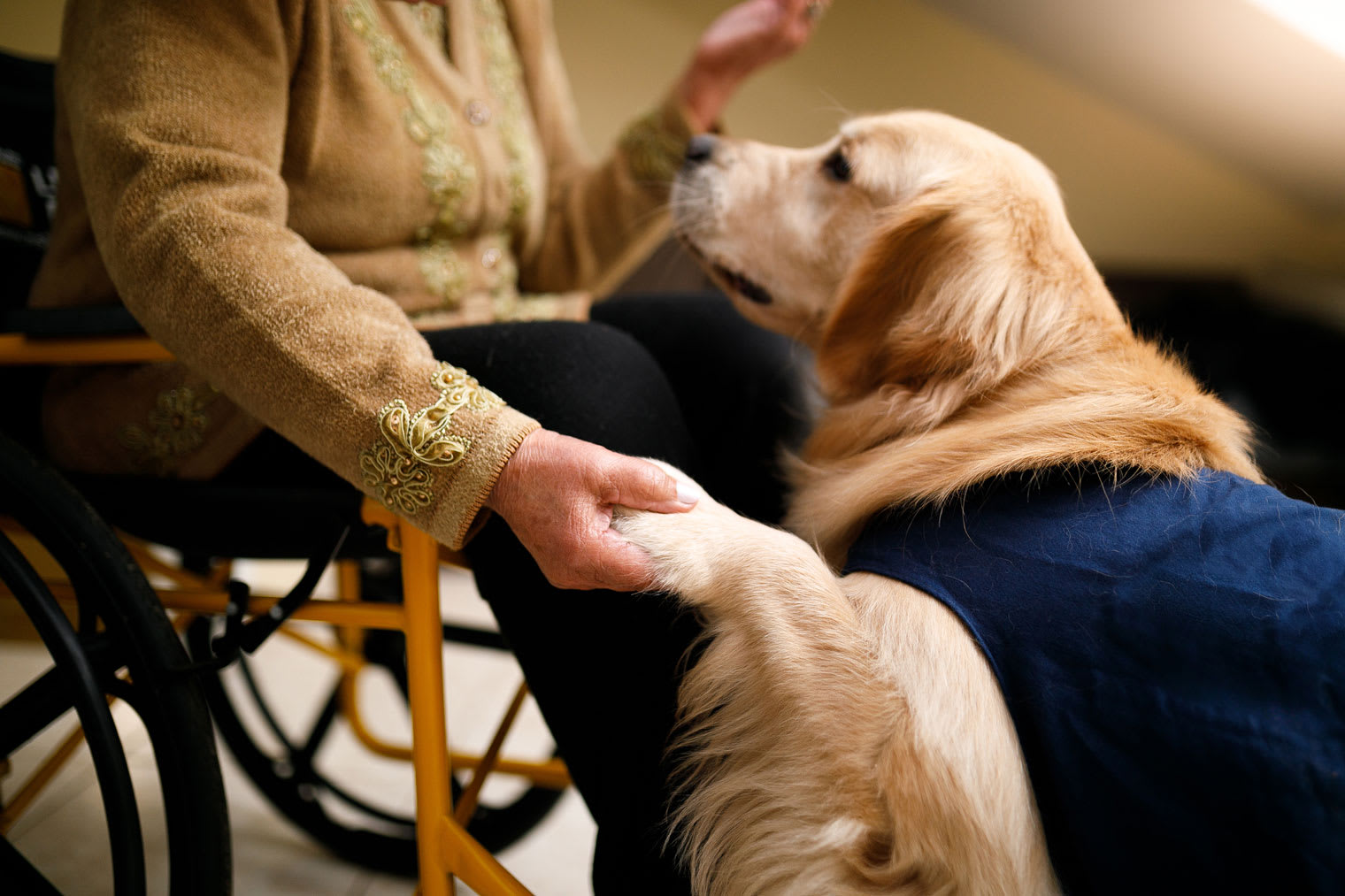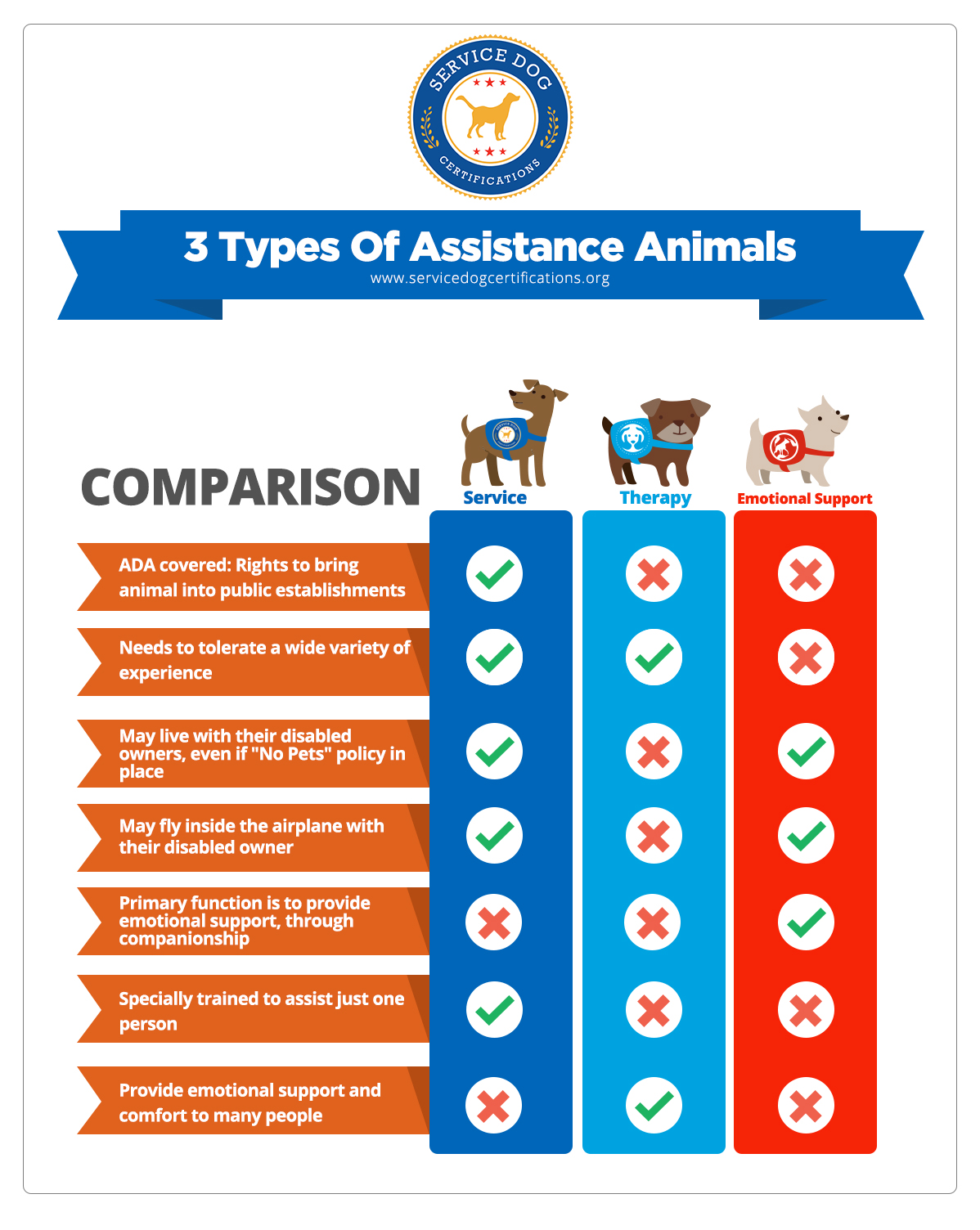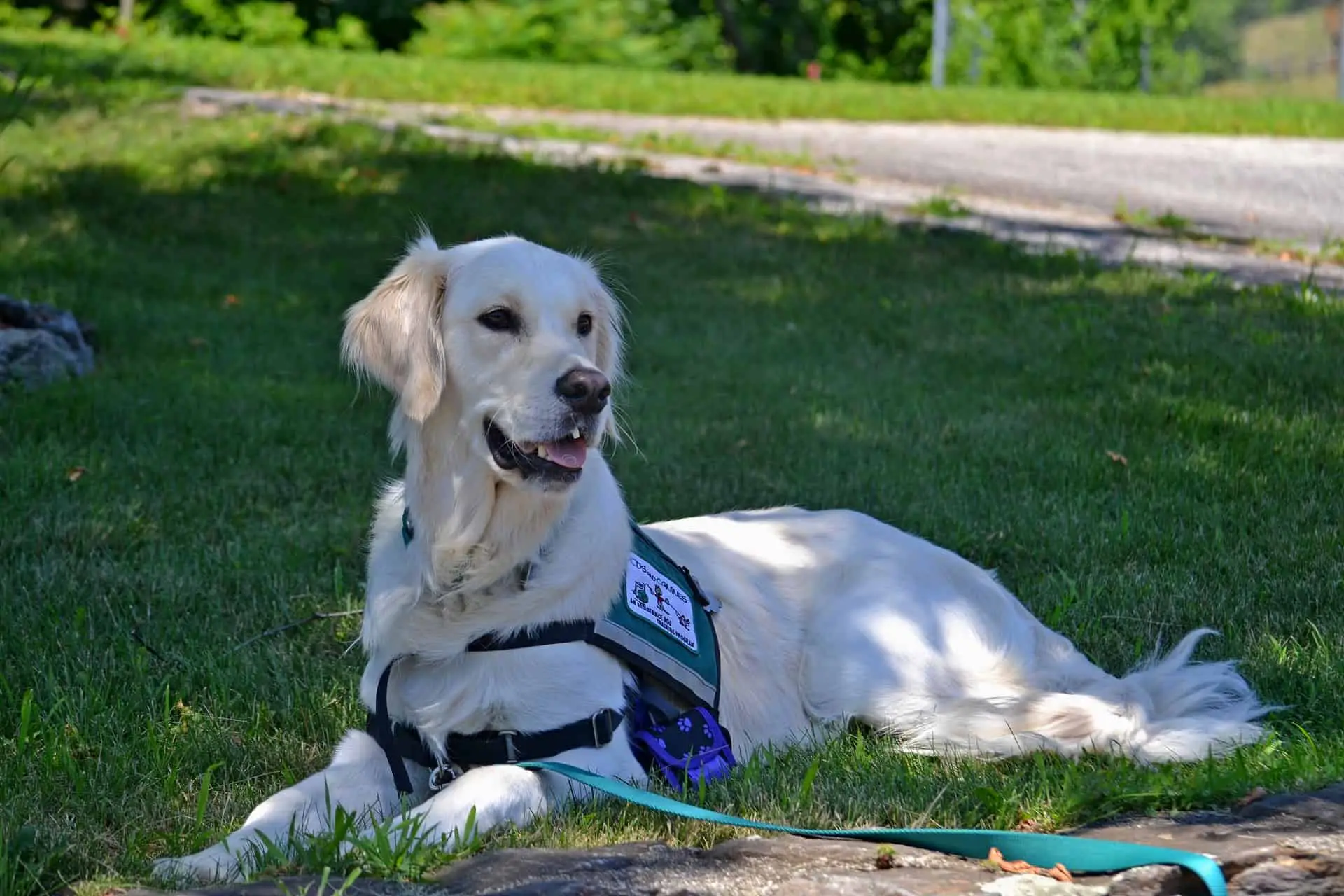Service Animals And Emotional Support Animals In Victim Services

Emotional support animals are only permitted in University of Pittsburgh residence halls if the animal has been determined to be a reasonable accommodation for an individual with a.
Service animals and emotional support animals in victim services. Examples include a dog that guides an individual who is blind alerts a deaf or hard of hearing person when a doorbell rings or picks up and hands a pen to a person a with a mobility impairment. With a limited exception for miniature horses a service animal can. If the dog has been trained to sense that an anxiety attack is about to happen and take a specific action to help avoid the attack or lessen its impact that would qualify as a service animal.
Find out the laws in the United States that apply to these. Requests to possess an ESA in a residential facilities including their common areas must be approved by the Departments of Disability Resources and Residence Life. Emotional support animals are not included.
Learn the differences between service animals crisis response canines emotional support animals therapy animals and pets. This guide provides an overview of how major Federal civil rights laws govern the rights of. A service animal falls under the Americans with Disabilities Act and is usually a dog that is trained to do work or perform tasks for the benefit of an individual with a physical sensory psychiatric or intellectual disability Emotional support animals are not trained in specific tasks and are not recognized under the ADA.
There are differences in the processes required and in the accommodations provided to individuals with identified disabilities supported by Service Animals and Emotional Support Animals. The federal Fair Housing Act requires housing facilities to allow service dogs and emotional support animals if necessary for a person with a disability to have an equal opportunity to use and enjoy the home. A service animal means any dog that is individually trained to do work or perform tasks for the benefit of a person with a disability including a physical sensory or psychiatric disability.
During this session practical information will be provided to direct service providers and other programs open to the public about service and support animals. ESAs are afforded protections under the Fair Housing Act FHA only. Entities may only ask if the service animal is needed for a disability and if the animal has been trained to perform a specific task.
The ADA makes a distinction between psychiatric service animals and emotional support animals. Dogs are great animals who are more than able to help ptsd victims. Service Animals in Training.



















